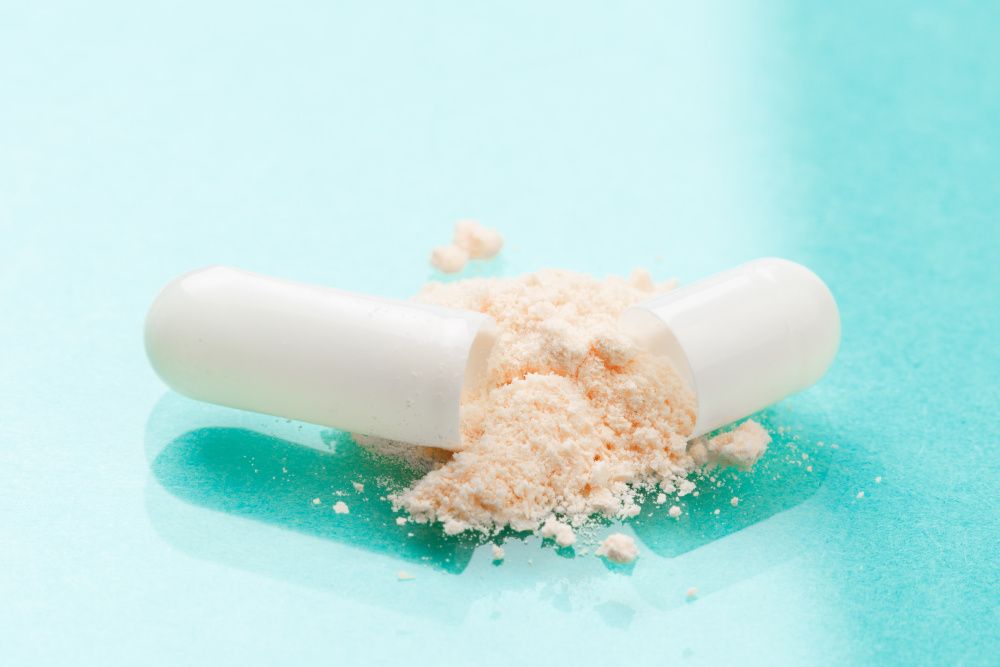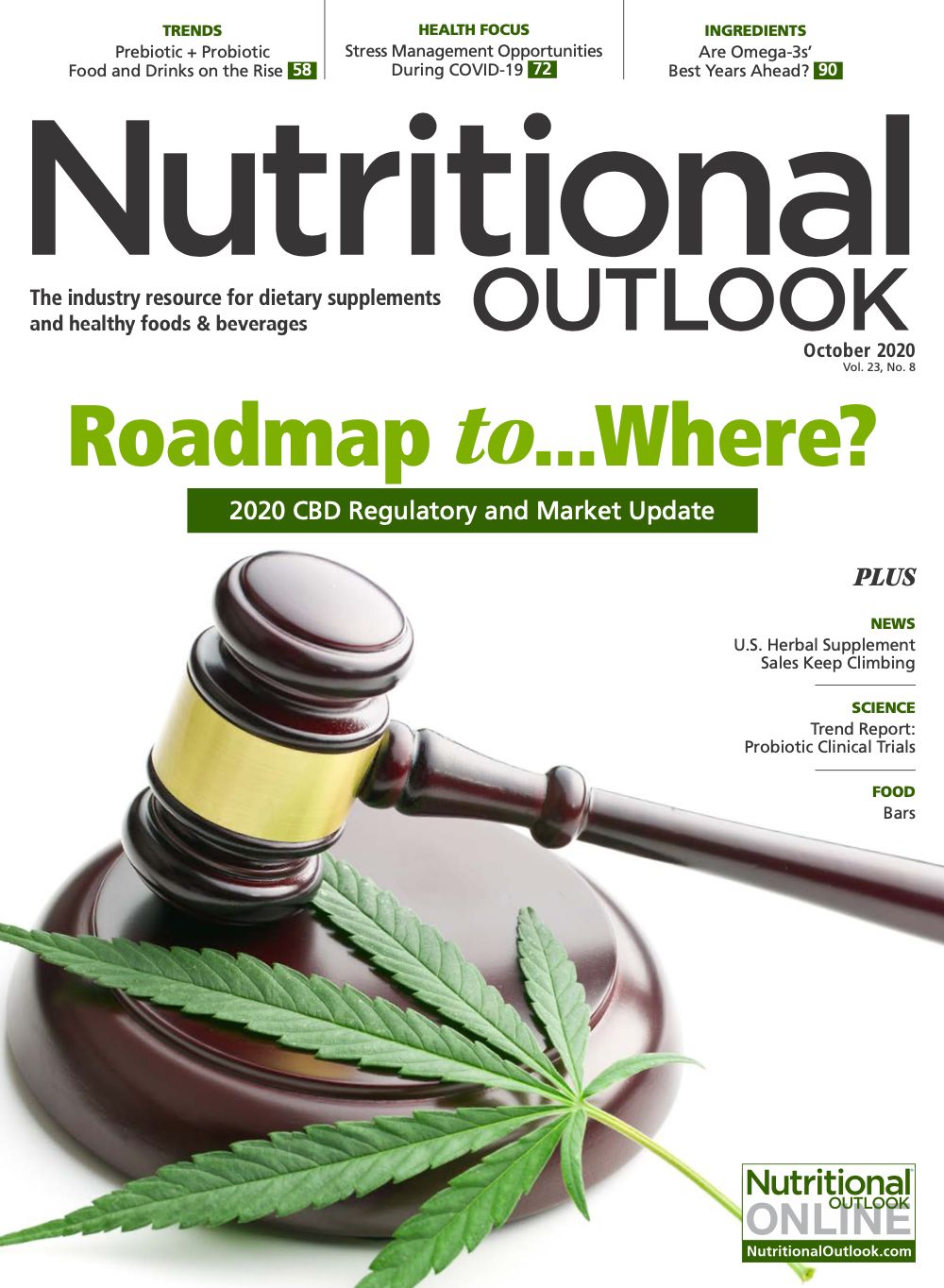Probiotics in the spotlight...or crosshairs?
Probiotics are no stranger to critics, but industry insiders describe why they expect this category to survive—and flourish.
Photo credit © Fototocam - Stock.adobe.com

When the American Gastroenterological Association (AGA; Bethesda, MD) released clinical guidelines in June recommending—among other things—against the use of probiotics to treat most digestive conditions, advocates for good gut bugs could have been forgiven for thinking, “Here we go again.”
And when several weeks later the show “60 Minutes” aired a segment questioning probiotics’ utility—literally: its title was “Do Probiotics Actually Do Anything?”—probiotic partisans could have been forgiven for thinking, “Here we go again, again.”
After all, this isn’t the first time that probiotics have played defense—and it won’t be the last. Yet while challenging press comes and goes, a wealth of research supports probiotics’ benefits, and that research continues. Which is why those who know probiotics best remain optimistic.
Casting Doubt
The AGA’s clinical guidelines were a departure in that they evaluated the effects of single-strain and multi-strain probiotic formulations—instead of a universal “probiotics” class—on gastrointestinal diseases like Clostridioides difficile–associated diseases, Crohn’s disease, ulcerative colitis, inflammatory bowel disease and pouchitis, irritable bowel syndrome, infectious gastroenteritis, and necrotizing enterocolitis.
And while the guidelines document is rich in detail—including a statement of conditional support for using certain probiotic formulations in three clinical settings—the message to emerge is, in the words of Grace L. Su, a professor of medicine at the University of Michigan, Ann Arbor, and the guideline panel’s chair, “that the public’s assumptions about the benefits of probiotics are not well founded, and that there is also a major variation in results based on the formulation of the probiotic product.”
As for the “60 Minutes” segment, it acknowledged the importance of continuing research into the workings of the gut microbiome, yet it also featured the voices of medical experts who cast doubt on not only probiotics’ research record but their efficacy, too.
Let’s Unpack That
And, boy, did all of that give the supplement industry a lot to unpack.
For his part, George Paraskevakos, MBA, executive director, International Probiotics Association (IPA; Los Angeles, CA), notes that the scientists, health professionals, and others who make up his organization’s membership evaluated both the messaging and analysis of the reports. And though the IPA agrees with the premise that sound science matters, “What the AGA and the ‘60 Minutes’ segment presented did not reflect the most recent, or even best available, science,” he concludes.
Speaking specifically to the AGA guidelines, Daniel Fabricant, PhD, CEO and president, Natural Products Association (NPA; Washington, DC), detects a whiff of media manipulation. “The way the story was positioned versus what was actually in the guidelines was disappointing, to put it mildly,” he says. “The guidelines even have some recommendations for probiotic use, but I’d guess that whoever ran the PR on this knew that wouldn’t get much press compared to going hard on the negatives, so they slanted it.”
What Supplements Do
However, Andrea Wong, PhD, senior vice president, scientific and regulatory affairs, Council for Responsible Nutrition (CRN; Washington, DC), points to an important distinction about the AGA document that should give the supplement industry heart.
Namely, she says, the document comprises a set of clinical practice guidelines directed toward doctors and “in no way diminishes the important role probiotic supplements play in maintaining digestive health or supporting other areas of health.”
In other words, “It’s important to remember that there’s a difference between using a probiotic to treat a specific disease and the general use of probiotics in foods or dietary supplements to support digestive health, or for other health benefits,” Wong emphasizes. “Probiotics, or any dietary supplement, are not intended for the treatment of serious diseases and medical conditions.”
Yet while the supplement-versus-drug distinction is chapter-and-verse within the supplement industry, Paraskevakos believes that healthcare providers’ understanding “hasn’t kept up with the overall development of probiotic science. Healthcare providers are ambassadors to consumers and need education about the health benefits of specific probiotics, which goes beyond the general to more specific outcomes, so that they can, in turn, educate and guide their patients.”
Fabricant agrees, adding that while he and NPA are “encouraged by how many of our members are willing to investigate probiotics’ benefits in disease states, we don’t make those claims on products. The majority of studies are for maintaining GI health or some other structure or function of the body.”
Safety First
Probiotic supplements might prefer not to keep reputational company with pharmaceuticals anyway. Notes Jennifer Montgomery, AMCAS marketing lead, probiotics, DuPont Nutrition & Biosciences (Madison, WI), “Drugs tend to have substantial side effects. Contrast this with probiotics, where the safety record is extremely good, side effects extremely rare, and risks to users very small.”
Indeed, one of CRN’s gripes with the “60 Minutes” probiotic segment was how the program “falsely called into question the safety and regulation of this category,” Wong notes, pointing out the long history of safety studies undergirding probiotics’ safe use.
“Further,” she adds, “probiotic products marketed as dietary supplements are subject to comprehensive dietary supplement regulations that encompass safety, manufacturing, labeling, and claims.” So nothing to worry about here, either.
Be Specific
One aspect of the AGA guidelines and the “60 Minutes” report that industry insiders praise is their acknowledgement of strain specificity. As Paraskevakos says, “There’s overwhelming evidence toward strain-specific probiotic effects. Probiotics shouldn’t be treated as a homogenous class of interventions.”
Yet while Shaheen Majeed, president worldwide, Sabinsa (East Windsor, NJ), also appreciates the mention of strain specificity, he considers the AGA late to the game.
“The study postulates that devising a product with a proper, viable, and potent strain of probiotic species—and administering it at an optimal probiotic concentration—may produce the desired health effects,” Majeed says. “But that observation is actually a bit behind the times because those involved in formulating effective probiotic products already know that formulators need to select the right probiotic for the intended benefit.”
Either way, the underlying message isn’t all bad, Majeed concludes. “The AGA guidelines aren’t against the use of probiotics, but rather define the conditions where probiotics cannot be used as supportive therapy. Thus, we shouldn’t feel the report as a blow, but as a roadmap for developing probiotic niches.”
Prove It
That’s just what industry is doing, with an emphasis on study quality. “Formulators should rely on properly planned and evaluated research,” Majeed says. “It’s not enough to say there’s research on a probiotic; the quality of that research matters.”
Montgomery puts her company’s research in that camp. “Our eight-step Howaru Verify Protocol ensures that our probiotic strains are well-documented for safety, quality, and efficacy,” she says. That means conducting clinical trials on probiotic strains and strain combinations to demonstrate safety and efficacy, monitoring viability through study duration, consistently reporting adverse events, and registering all studies on clinical-trial registries. “We also believe in clinical-trial transparency and seek to eliminate bias in our trials via multiple mechanisms,” she says.
What Controversy?
Which makes you wonder what all the fuss is about.
“We’re not seeing any slowdown in probiotic use or sales,” Paraskevakos says. Forecasts predict 10% retail growth in the category for 2020 and beyond, he notes, and “while we don’t have the numbers yet, all indications are that e-commerce will be more.” Further research even shows that consumers appreciate probiotics’ scientifically supported immune benefits even more as the COVID-19 pandemic persists.
In fact, the IPA has fielded more requests for information since the AGA guidelines and “60 Minutes” story dropped, Paraskevakos says, with the group’s education and science committees busy answering questions and creating resources for healthcare providers, journalists, and consumers.
“The job is never finished,” he says. “But hopefully, one day we’ll stop seeing misinformation published about probiotics.”

Prinova acquires Aplinova to further increase its footprint in Latin America
April 7th 2025Prinova has recently announced the acquisition of Brazilian ingredients distributor Aplinova, which is a provider of specialty ingredients for a range of market segments that include food, beverage, supplements, and personal care.

























